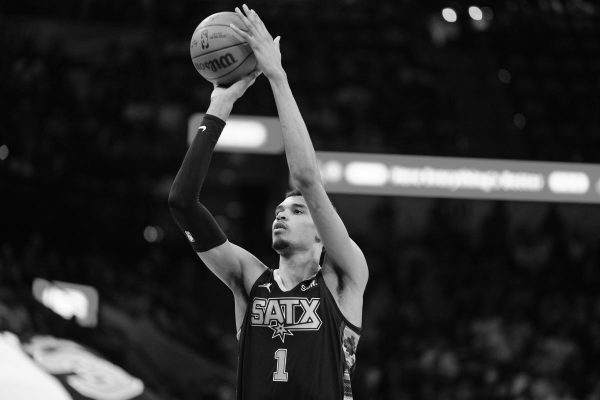Gendered “Yeo” Team Names Not Representative of Oberlin
I don’t think I would be wrong in saying that small, non-sectarian, liberal arts colleges like Oberlin are often at the forefront of progressive dialogue. So at a school that takes pride in being inclusive to transgender and non-binary students — a number of whom are on sports teams — it doesn’t make sense to have team names based on the gender binary. I’m not arguing that Yeomen or Yeowomen as names are particularly offensive, but I think we can do better to represent the students. If Oberlin wants to maintain its status as a school known for social progressiveness that values inclusivity of people of all identities, dropping Yeomen and Yeowomen seems like a reasonable change to make.
Before I get into what a change would look like, I want to clarify that my issue is with the “men” and “women” components of the names. I also want to acknowledge the extensive history of the Yeomen. As someone who grew up in Oberlin and went to the College’s sports games as a kid, I understand why people would feel a strong connection to it. Hearing the late Oberlin football PA announcer George Abram say, “First down … YEOOOOOOMEN,” in his deep voice was a big part of my Oberlin sports experience growing up. There’s no doubt that the unique name has become iconic in Oberlin sports.
The history of how the teams became the Yeomen is also really interesting. When Oberlin first introduced athletics teams, the athletes became known for the letter “O” on their jackets. This led to people referring to them as “Ye-O-Men,” and the name Yeomen was chosen after a contest held in a 1926 issue of the Review. The cleverness of this decision — a yeoman is someone who holds and cultivates a small plot of land — was also considered. There is definitely a strong history with the name, and the teams that have gone by the Yeomen and Yeowomen shouldn’t be forgotten.
While all this history is important, we must also consider the present. Recognizing what other schools have done when faced with similar issues regarding sports team names should be a part of this process. Just last year, fellow North Coast Athletic Conference member and our biggest rival Kenyon College renamed its teams to the Owls from the Lords and Ladies. An article published in the Kenyon Collegian detailed the need for a name change in 2021 prior to the switch, citing the issue of the gendered binary that the names set.
It’s also important to point out that many college athletic programs have never even had gendered names. In addition to names inspired by animals, there are other creative genderless college team names — just in Ohio there are the Ohio State Buckeyes, the Akron Zips, and the Denison Big Red. Having gendered team names isn’t the norm — and it’s pretty odd that Oberlin, of all places, has them.
So, what else could Oberlin’s sports teams go by? The answer lies in the albino squirrels that have been seen on campus for years. After all, there are already albino squirrel logos and merchandise used by the athletic department, not to mention the physical albino squirrel mascot named Yeobie — who uses they/them pronouns.
Because my main problem with the current name is the “men” and “women” part of it, the “Yeo” part can and should stay around in traditions and imagery for the teams. Many other college teams have nicknames and imagery that they are associated with that aren’t their official team name. University of Auburn sports fans shout “War Eagle!” even though the actual team name is the Tigers, and the University of Alabama Crimson Tide teams have an elephant mascot and logo. We can keep the “Go Yeo!” chants and probably even GoYeo, the website for Oberlin Athletics. As mentioned before, Yeobie, our mascot, has “Yeo” in the name. I am not looking to erase the “Yeo” tradition; rather, I just think we can better represent the diversity of gender identities on our teams with a new official name.
I know how much sports team name changes make people mad. Oberlin City Schools went through a name change when I was a kid, and my favorite baseball team, the Cleveland Guardians, adopted a new name just last year. A lot of people were angry at both these changes, making accusations that they were erasing history or just looking to appeal to people of certain political groups. To anyone who thinks I’m trying to cancel an important piece of Oberlin College history; I am not. I’m just asking Oberlin to reflect on whether having sports team names that follow the gender binary — when many of its students don’t — makes sense.



